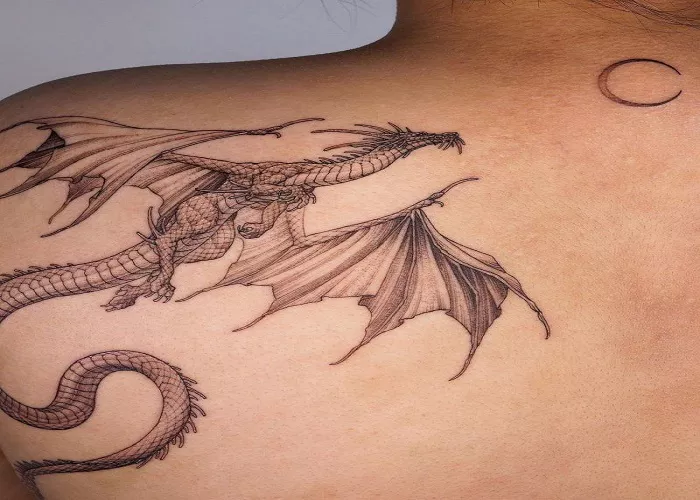Julia Ducournau’s long-awaited return to the Croisette following her Palme d’Or-winning “Titane” arrives with high expectations — and leaves with mixed reactions. Premiering in competition at the Cannes Film Festival, Alpha is a visually ambitious but narratively confounding allegorical drama that attempts to revisit the trauma of the AIDS crisis through the lens of speculative fiction.
The film follows 13-year-old Alpha (Mélissa Boros), whose return from a party with a crude homemade tattoo sets off a wave of maternal panic. Her mother, played by Golshifteh Farahani, immediately demands details about the needle — was it sterile, was it used? Her concern is rooted in personal tragedy: years earlier, her brother Amin (Tahar Rahim, hauntingly gaunt) succumbed to a mysterious virus that transformed his body into a marble-like statue. Victims of the illness expel a chalky powder with each cough as their bodies calcify — a grotesque metaphor for the physical and social decay wrought by disease.
Alpha, too young at the time to remember Amin clearly, now finds her memories of him blurred and fragmented. Ducournau visually represents this psychological dissonance by intercutting reddish-golden flashbacks with present-day sequences bathed in anxious blue hues. These jarring transitions reflect Alpha’s inner turmoil, rendering her experience as what a poem she hears in school describes as “dreams within dreams.”
Alpha is one of three science fiction entries at this year’s festival that invoke fictional illnesses as allegories for the AIDS epidemic, alongside The Plague and The Mysterious Gaze of the Flamingo. This thematic resurgence — echoed in recent films like Fairyland, All of Us Strangers, and Jimpa — suggests that the psychological reverberations of the AIDS crisis are still deeply embedded in our cultural memory, possibly rekindled by the global experience of COVID-19.
Yet among its peers, Alpha stands out as the most frustrating — simultaneously heavy-handed in its metaphors and opaque in its storytelling. While Ducournau’s signature visual flair remains undeniable, the film’s muddled narrative and overworked symbolism make for a viewing experience that is more taxing than transcendent.
Related topics:

